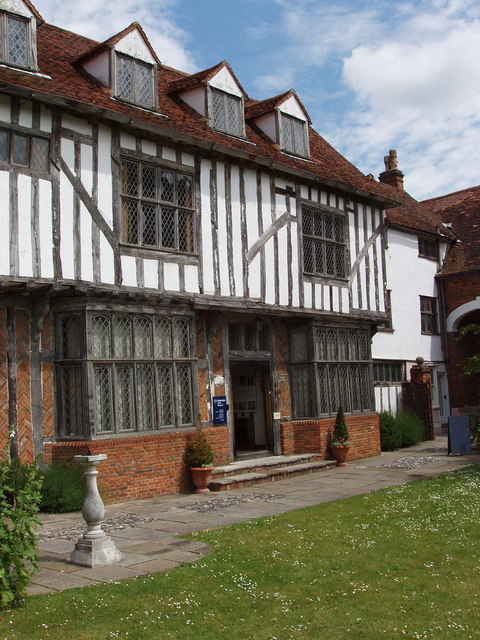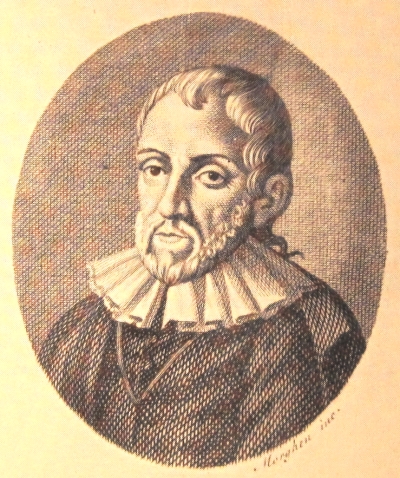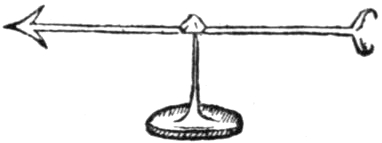|
Verticity
In the history of physics, verticity (Latin: ''verticitate'') is an alleged tendency to move around or toward the North or South Pole, often called Earth's "vertices". In his acclaimed 1600 treatise ''On the Magnet and Magnetick Bodies, and on That Great Magnet the Earth'', William Gilbert distinguished two kinds of verticity. ''Surface verticity'' is the tendency to point north found in ordinary "loadstones" and magnetised iron. This verticity was the weaker expression of a more powerful kind of verticity: the ''deep verticity'' in the Earth's core. Gilbert was among the first to believe that the Earth spins. It spins, he says, because of its deep verticity. In his judgement, deep verticity also explained surface verticity: over time, bits and pieces of matter escaped from Earth's core, their verticity having been corrupted and weakened by exposure to the degraded matter of Earth's crust. These bits of matter became the variety of weak magnets found nearer the Earth's surface. Gil ... [...More Info...] [...Related Items...] OR: [Wikipedia] [Google] [Baidu] |
William Gilbert (astronomer)
William Gilbert (; 24 May 1544? – 30 November 1603), also known as Gilberd, was an English physician, physicist and natural philosopher. He passionately rejected both the prevailing Aristotelian philosophy and the Scholastic method of university teaching. He is remembered today largely for his book ''De Magnete'' (1600). A unit of magnetomotive force, also known as magnetic potential, was named the ''Gilbert'' in his honour. Life and work Gilbert was born in Colchester to Jerome Gilberd, a borough recorder. He was educated at St John's College, Cambridge. After gaining his MD from Cambridge in 1569, and a short spell as bursar of St John's College, he left to practice medicine in London and travelled on the continent. In 1573, he was elected a Fellow of the Royal College of Physicians. In 1600 he was elected President of the college.Mottelay, P. Fleury (1893). "Biographical memoir". In He was Elizabeth I's own physician from 1601 until her death in 1603, and James ... [...More Info...] [...Related Items...] OR: [Wikipedia] [Google] [Baidu] |
Francis Bacon
Francis Bacon, 1st Viscount St Alban (; 22 January 1561 – 9 April 1626), also known as Lord Verulam, was an English philosopher and statesman who served as Attorney General and Lord Chancellor of England. Bacon led the advancement of both natural philosophy and the scientific method and his works remained influential even in the late stages of the Scientific Revolution. Bacon has been called the father of empiricism. He argued for the possibility of scientific knowledge based only upon inductive reasoning and careful observation of events in nature. He believed that science could be achieved by the use of a sceptical and methodical approach whereby scientists aim to avoid misleading themselves. Although his most specific proposals about such a method, the Baconian method, did not have long-lasting influence, the general idea of the importance and possibility of a sceptical methodology makes Bacon one of the later founders of the scientific method. His portion of the method ... [...More Info...] [...Related Items...] OR: [Wikipedia] [Google] [Baidu] |
Bernardino Telesio
Bernardino Telesio (; 7 November 1509 – 2 October 1588) was an Italian philosopher and natural scientist. While his natural theories were later disproven, his emphasis on observation made him the "first of the moderns" who eventually developed the scientific method. Biography Telesio was born of noble parentage in Cosenza, a city in Calabria, Southern Italy (Kingdom of Naples). He was educated in Milan by his uncle, Antonio, himself a scholar and a poet of eminence, and afterwards in Rome and Padua. His studies included a wide range of subjects, classics, science and philosophy, which constituted the curriculum of the Renaissance savants. Thus equipped, he began his attack upon the medieval Aristotelianism which then flourished in Padua and Bologna and he wrote some short poems, brought back to light by Luca Irwin Fragale in 2010. In 1553 he married and settled in Cosenza, becoming the founder of the Cosentian Academy. From 1544 to 1550 and after 1565 he lived in the hous ... [...More Info...] [...Related Items...] OR: [Wikipedia] [Google] [Baidu] |
De Magnete
''De Magnete, Magneticisque Corporibus, et de Magno Magnete Tellure'' (''On the Magnet and Magnetic Bodies, and on That Great Magnet the Earth'') is a scientific work published in 1600 by the English physician and scientist William Gilbert. A highly influential and successful book, it exerted an immediate influence on many contemporary writers, including Francis Godwin and Mark Ridley. Contents In ''De Magnete'', Gilbert described many of his experiments with his model Earth called the ''terrella''. Gilbert made the claim that gravity was due to the same force and he believed that this held the Moon in orbit around the Earth. The work then considered static electricity produced by amber. Amber is called ''elektron'' in Greek, and ''electrum'' in Latin, so Gilbert decided to refer to the phenomenon by the adjective ''electricus''. Summary ''De Magnete'' consists of six books. Book 1 Historical survey of magnetism and theory of Earth's magnetism. The lodestone in antiqui ... [...More Info...] [...Related Items...] OR: [Wikipedia] [Google] [Baidu] |
History Of Science And Technology In England
History (derived ) is the systematic study and the documentation of the human activity. The time period of event before the invention of writing systems is considered prehistory. "History" is an umbrella term comprising past events as well as the memory, discovery, collection, organization, presentation, and interpretation of these events. Historians seek knowledge of the past using historical sources such as written documents, oral accounts, art and material artifacts, and ecological markers. History is not complete and still has debatable mysteries. History is also an academic discipline which uses narrative to describe, examine, question, and analyze past events, and investigate their patterns of cause and effect. Historians often debate which narrative best explains an event, as well as the significance of different causes and effects. Historians also debate the nature of history as an end in itself, as well as its usefulness to give perspective on the problems of the p ... [...More Info...] [...Related Items...] OR: [Wikipedia] [Google] [Baidu] |




.jpg)